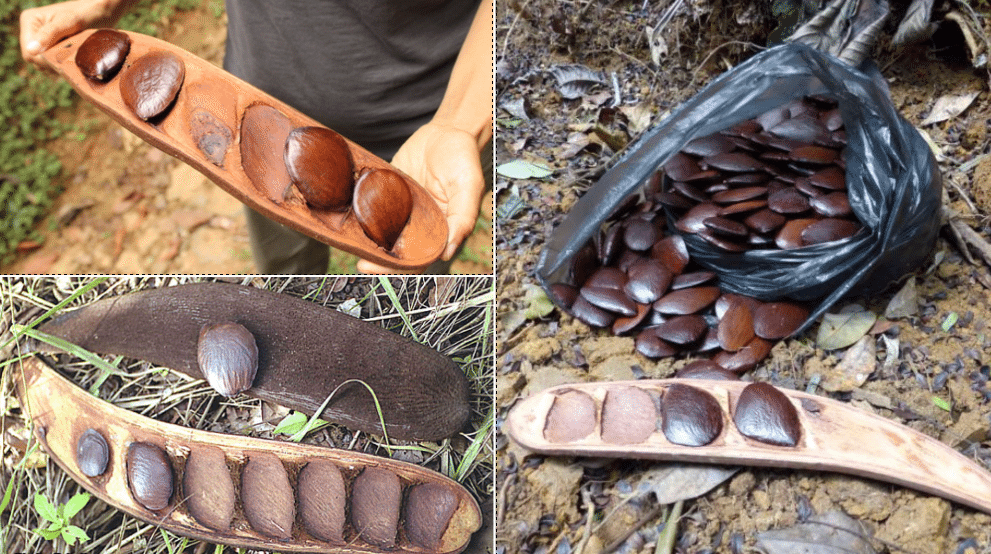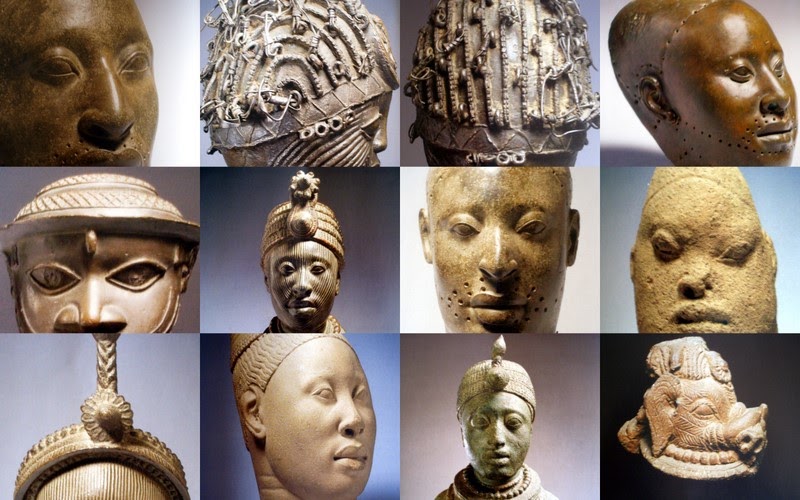African oil bean, scientifically called Pentaclethra macrophylla, is a native plant in tropical regions in Africa. In Nigeria, the oil bean is called Ugba or Ukpaka. The African oil bean plant is a tropical tree which can grow up to 21m. it is well branched with its branches spread like a canopy. The oil bean tree is mainly found in rainforests southern West Africa where they grow wildly. This tree has never really been purposefully largely cultivated by any individual near their home or commercially. Oil been trees are usually planted at roadsides as shade trees and by few farmers as cash crops.
The oil bean plant grows the oil bean leaf or flowers between March and April and between June and November. The African oil bean can be associated with pregnancy when it comes to health benefits. Consumers are often inquisitive about carbs in oil beans and fermented African oil bean. What the Igbo people of Nigeria call ‘ugba or ukpaka’ is the fermented African oil been. It is popular traditional food condiment among the southern and southern-eastern tribes. The fermentation is done naturally in homes a family business or for family consumption. The oil bean is found in the fruit of the oil bean tree. The fruit is a black, hard and woody pod measuring about 35-36 cm long and 5-10 cm wide. When the fruit is mature, it splits open revealing up to 8 flat, brown and shiny seeds of about 5-7cm.
FERMENTATION OF AFRICAN OIL BEAN
The fermentation process of the African oil bean is not a tedious one, hence it is done easily in the home. Fermentation methods vary from community to community. Describing a basic process, the seeds are boiled in water for 16 to 18 hours to remove the tough testa. The cotyledons are sliced and boiled again for 30 minutes, after which, they are left overnight in water at room temperature. The sliced cotyledons are finally washed in water and packaged in banana leaves.
Another longer method described by Odunfa and Oyeyiola (1985) and Odunfa (1986) reveals that the seeds are boiled in water over an open fire for 4-5 hours or up to 12 hours. The cotyledons are then removed from the seed coats and washed. The cotyledons are again boiled overnight over a low flame, allowed to cool, drained and washed several times to remove bitter components in the cotyledons and soaked for a period of 6 h. The cotyledons are then cut into long thin slices which are mixed with salt, put in a clean pot, covered and fermented for up to 5 days at room temperature. Usually, after 2-3 days of fermentation, the sliced cotyledons are wrapped in banana leaves and tied tightly.
Individuals or farmers who harvest oil bean seeds in eastern Nigeria often sell to ugba (fermented oil bean) producers. Once fermented, the oil bean becomes the perfect delicacy ingredient. It goes well with tapioca, stockfish, garden eggs, leaves, bitter kola and kola nuts. Most people ferment the oil bean before consumption because some studies have found unfermented oil beans to contain poisonous alkaloids. This African delight is fully packed with health benefits our Igbo siblings don’t even know about. Here are some health benefits of the African oil bean.
HEALTH BENEFITS OF AFRICAN OIL BEAN

-
Rich nutritional value
African oil bean seeds are rich in energy, protein, amino acids, phosphorus, magnesium, iron, vitamins, calcium, manganese, and copper. It is also an excellent source of phytonutrients such as tannins, alkaloids, flavonoids, sterols, glycosides, and saponins. These components are crucial to the nutritional health of human beings, and these seeds contain and provide a lot of these needs.
-
Dermatologic and beauty purposes
African oil beans contain anti-inflammatory properties which reduce inflammation in the body. Both the bark and seeds can be used for producing local ointment for treating itches, insects bites, cuts, and wounds. Also, it is recorded that the oil of these seeds can be used to make soaps. The vitamin component in the oil bean rejuvenates and feeds the skin to achieve utmost beauty results.
-
Farming
The wood and leaves of the oil been plant can be spread across the field to be used as mulch to enable crop growth. The mulch will retain soil moisture, suppress weed growth, regulate soil temperature and give the farm an aesthetically pleasing look.
-
Animal feed production
African oil bean seeds are a rich source of nutrients. They contain amino acids, minerals, proteins and fatty acids. These nutrients have been proven essential for use in the production of animal feeds especially when fortified. Animal feed is important to for continuous breeding of healthy animals in animal farms. Healthy animals equal healthy animal produce.
-
Culinary benefits
Oil beans are used in the preparation of numerous African dishes. This ingredient adds a fresh and earthy taste to food. African oil bean seeds can be cooked, sliced and allowed to undergo a fermentation process for three days before being prepared in delicacies. It can be prepared with tapioca, nkwobi (cow leg), abacha (African salads), sausages, okporoko, soups, isi ewu (goat head) and porridge.
-
Medicinal properties
African oil bean seeds have numerous medicinal properties such as antibacterial properties and antimicrobial properties. These seeds reduce cancer growth, treat gastrointestinal diseases, Bacillus cereus, Staphylococcus aureus, Klebsiellosis pneumonia and Bacillus subtilis. Oil beans seeds also treat leprosy, infertility, gonorrhoea, fever, and convulsion. The anthelmintic properties of African oil beans are essential in the treatment of parasitic worms.
-
Obesity control
African oil beans contain properties that control body weight. This, in turn, helps to control obesity. The agent responsible for this is the phytoestrogen. The oil bean plant is a rich source of phytoestrogens thus can be taken as a nutritional and vitamin supplement for controlling overweight and obesity.
-
Commercial benefits
The African oil bean seed has properties that can satisfy commercial needs. The oil extract of this seed is used in making soaps, candles and cooking oil. Oil bean seeds are edible and are sometimes cased in brown shells and used as décor, bead making, and other crafts. These items are bought and used by consumers depending on their need.
-
Lowers cholesterol level
The oil bean seed effectively lowers cholesterol. This is possible thanks to a property called saponin. Saponin reduces plasma cholesterol which will benefit the heart. It will give you a healthier blood channel and body. However, you must not that saponin is toxic, therefore, the oil bean must be consumed in moderation.
Africa is rich in nutrients and resources, however, our lack of awareness of these riches may cost our health. Rather than abandon local nutrients to opt for foreign diet plans not adapted to our lifestyle, why not learn about what we have and harness these resources.






